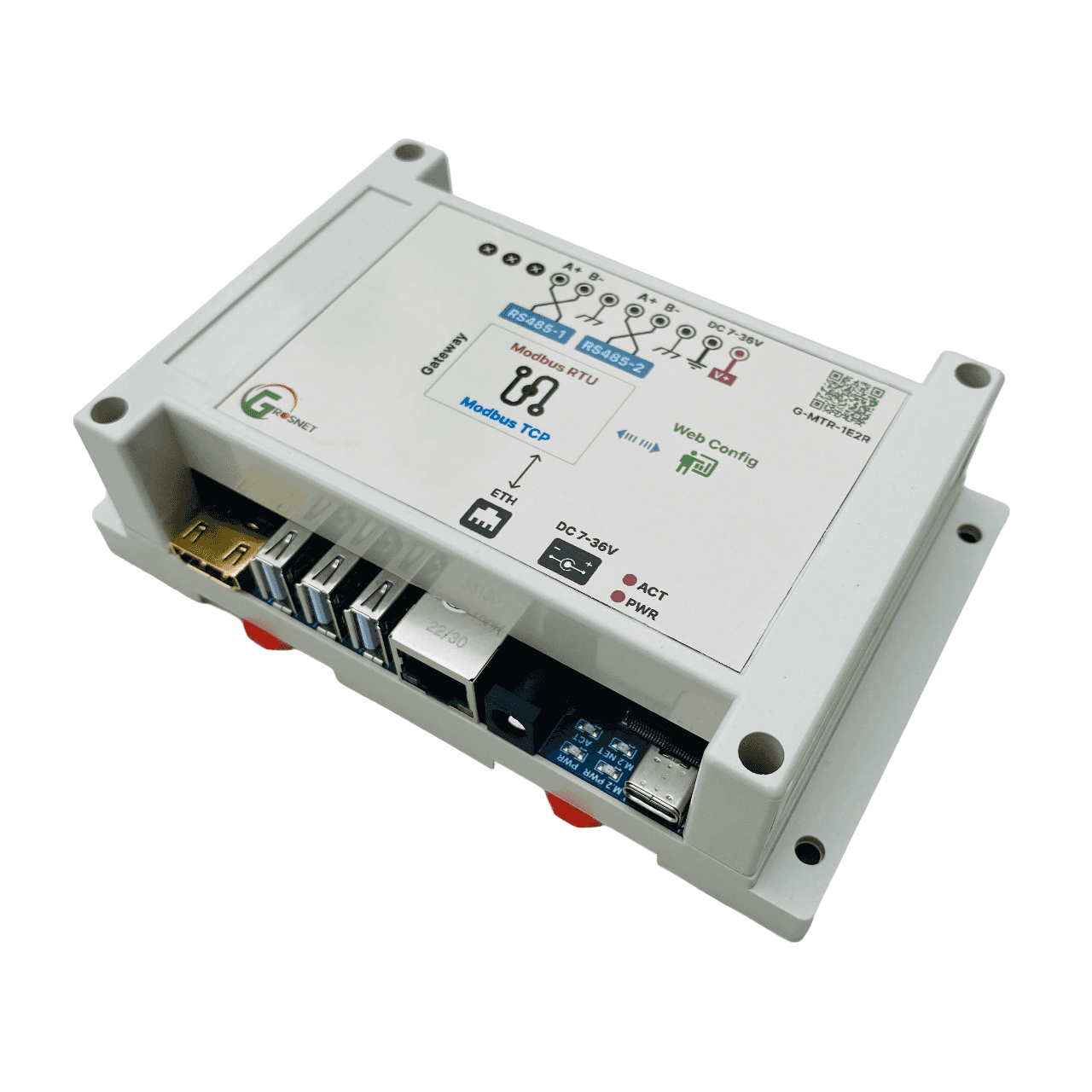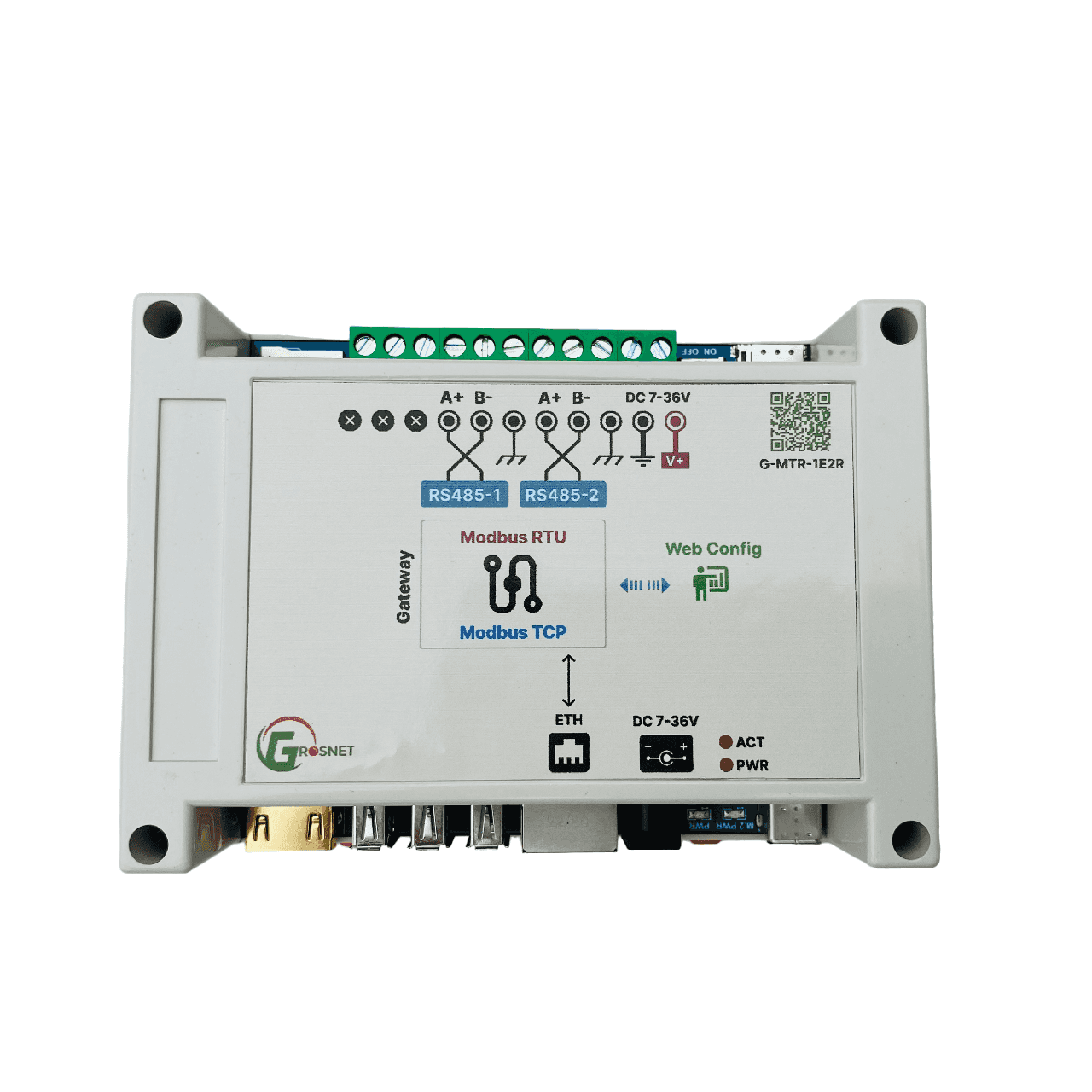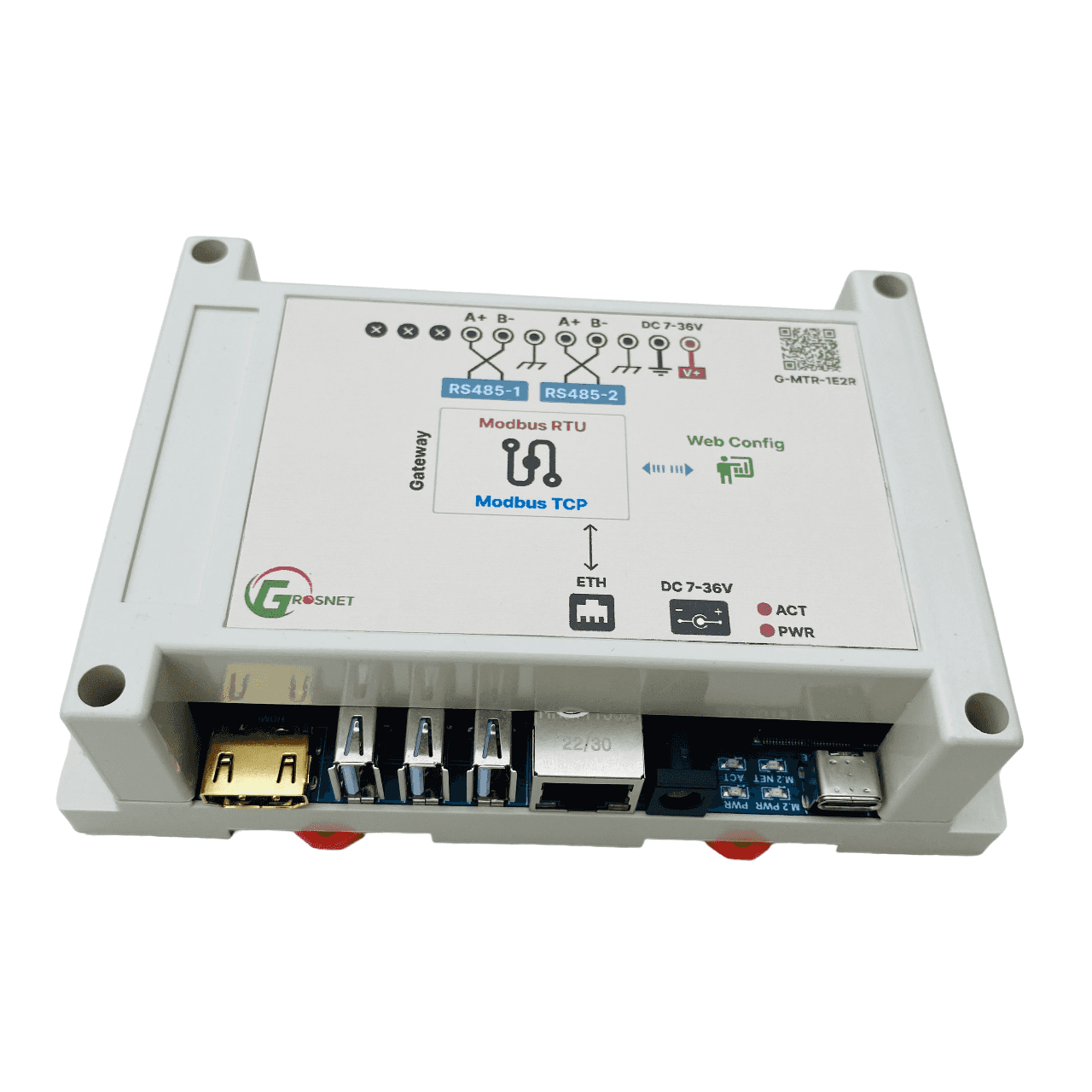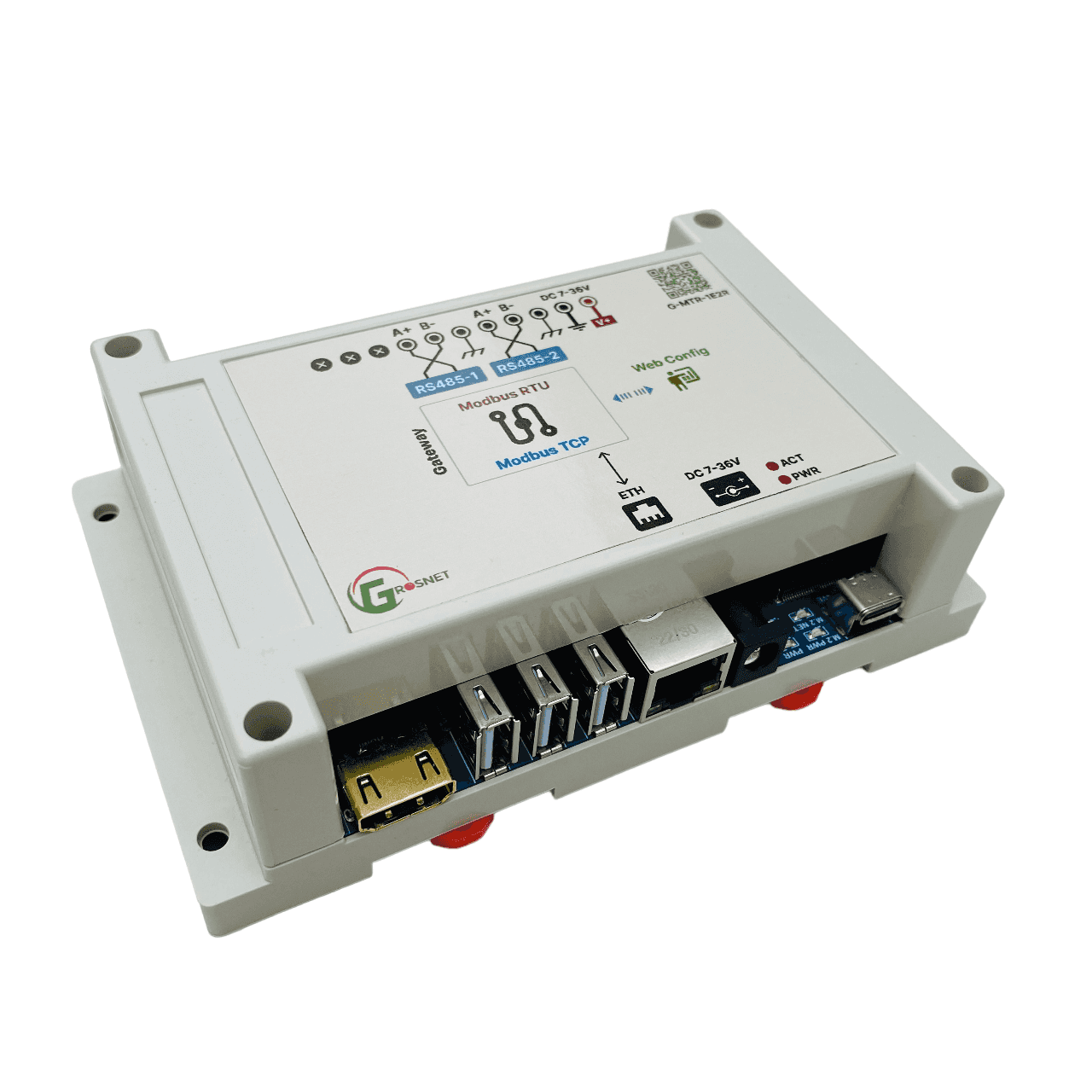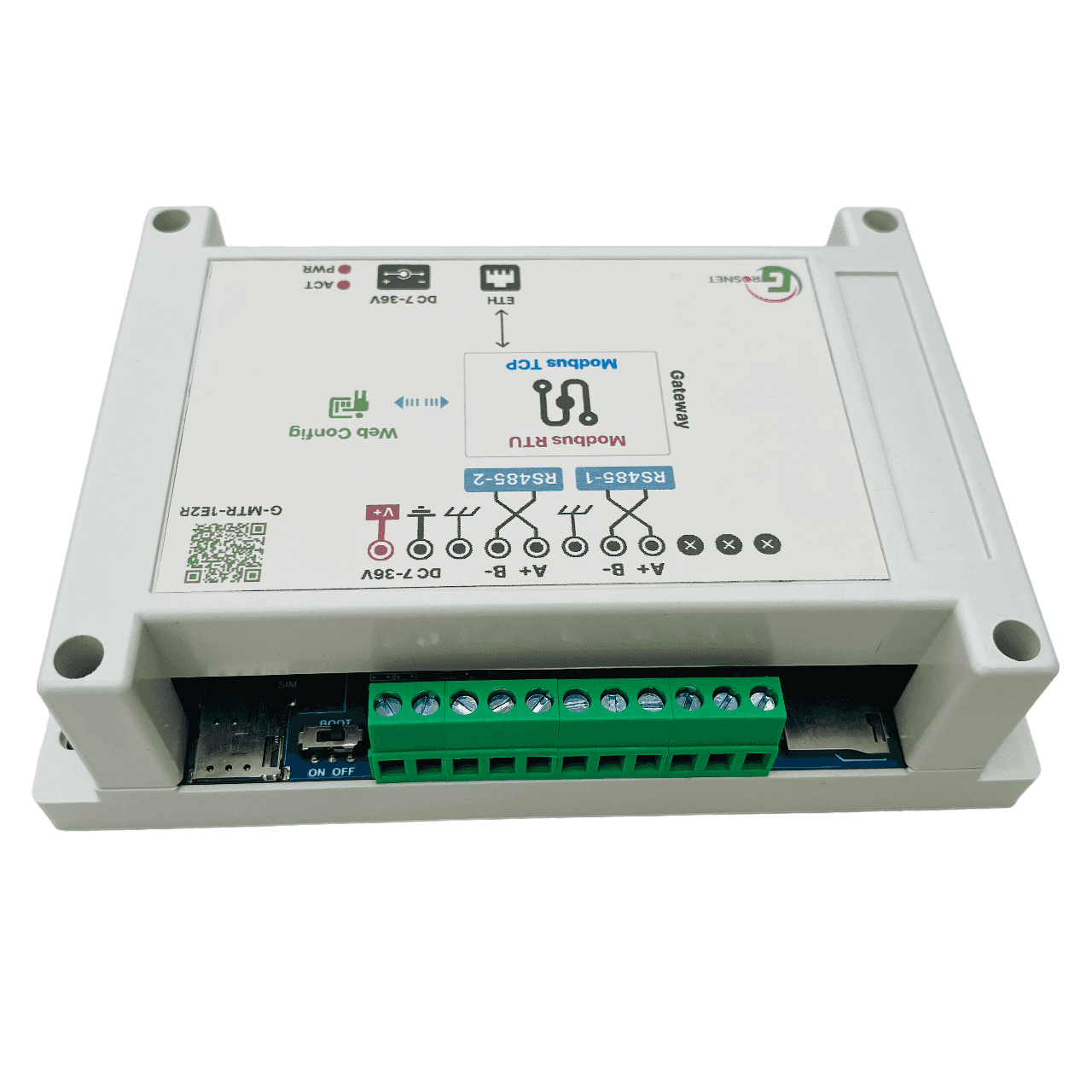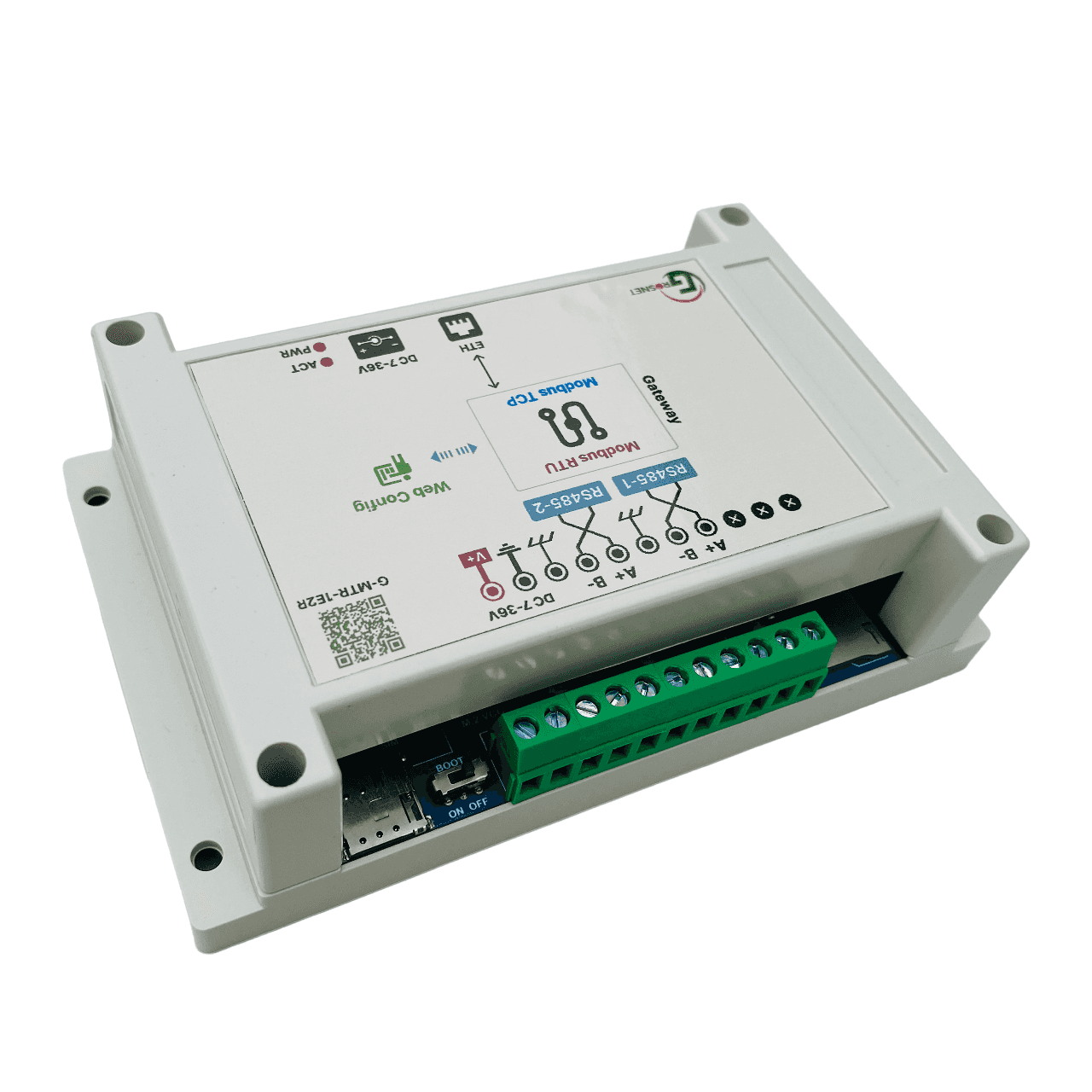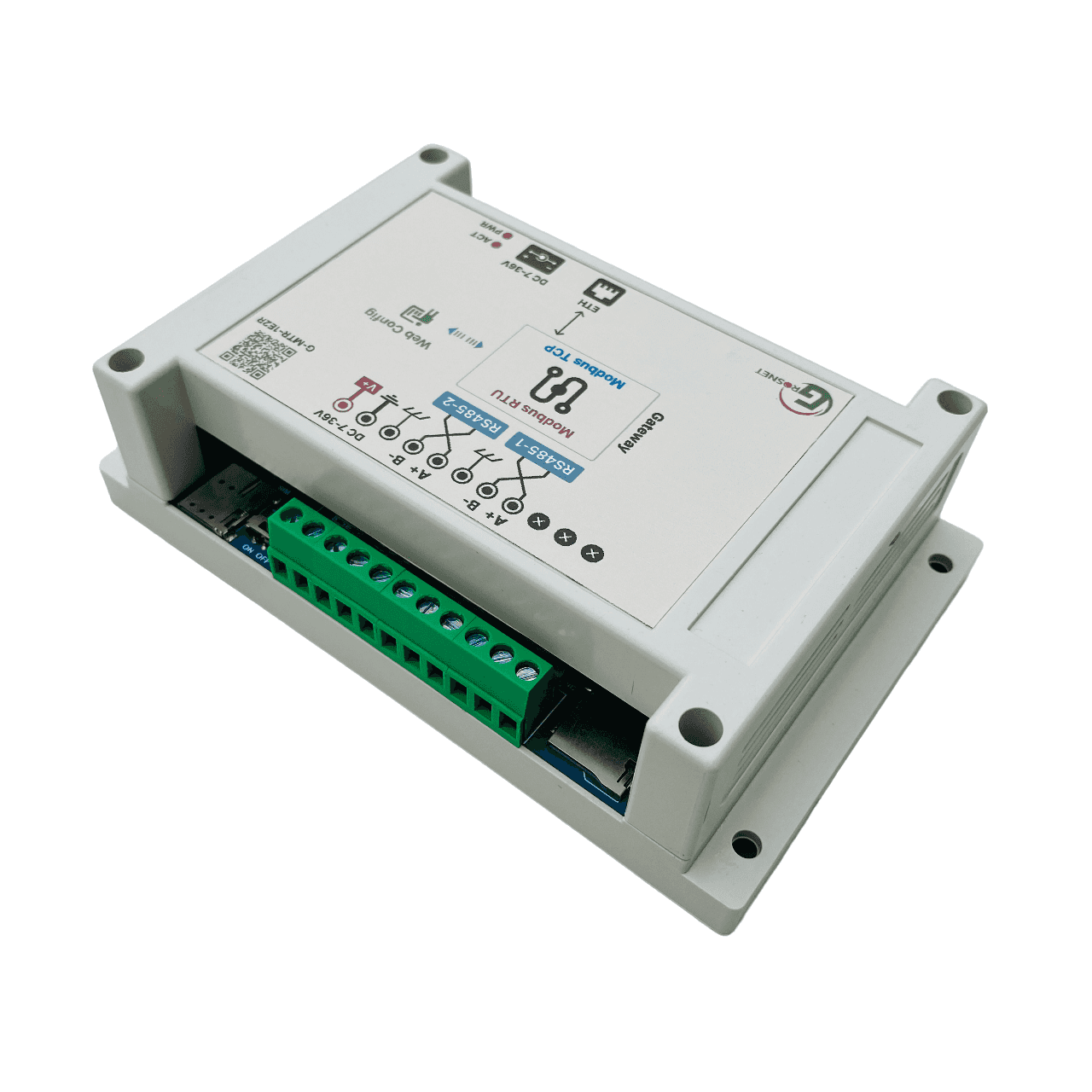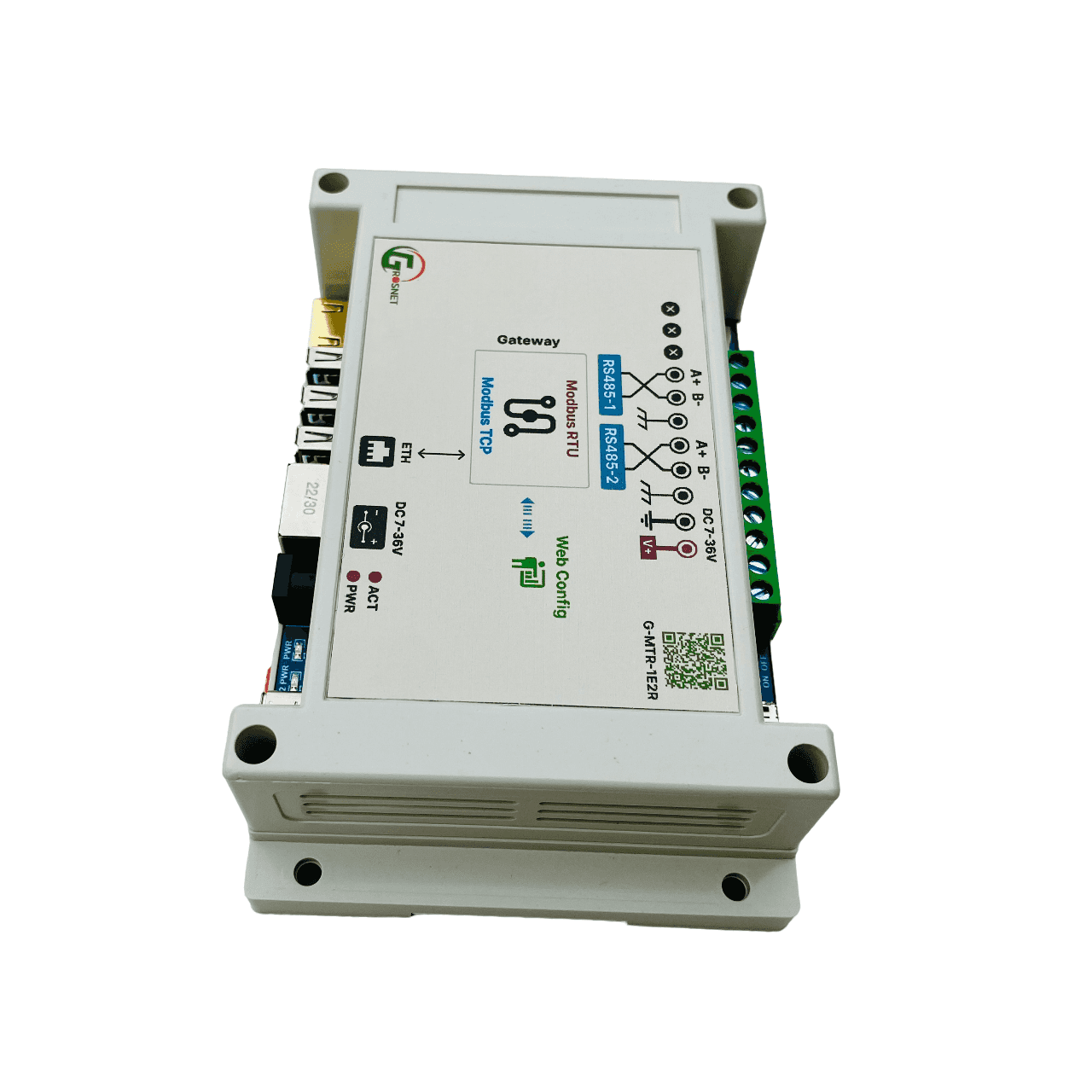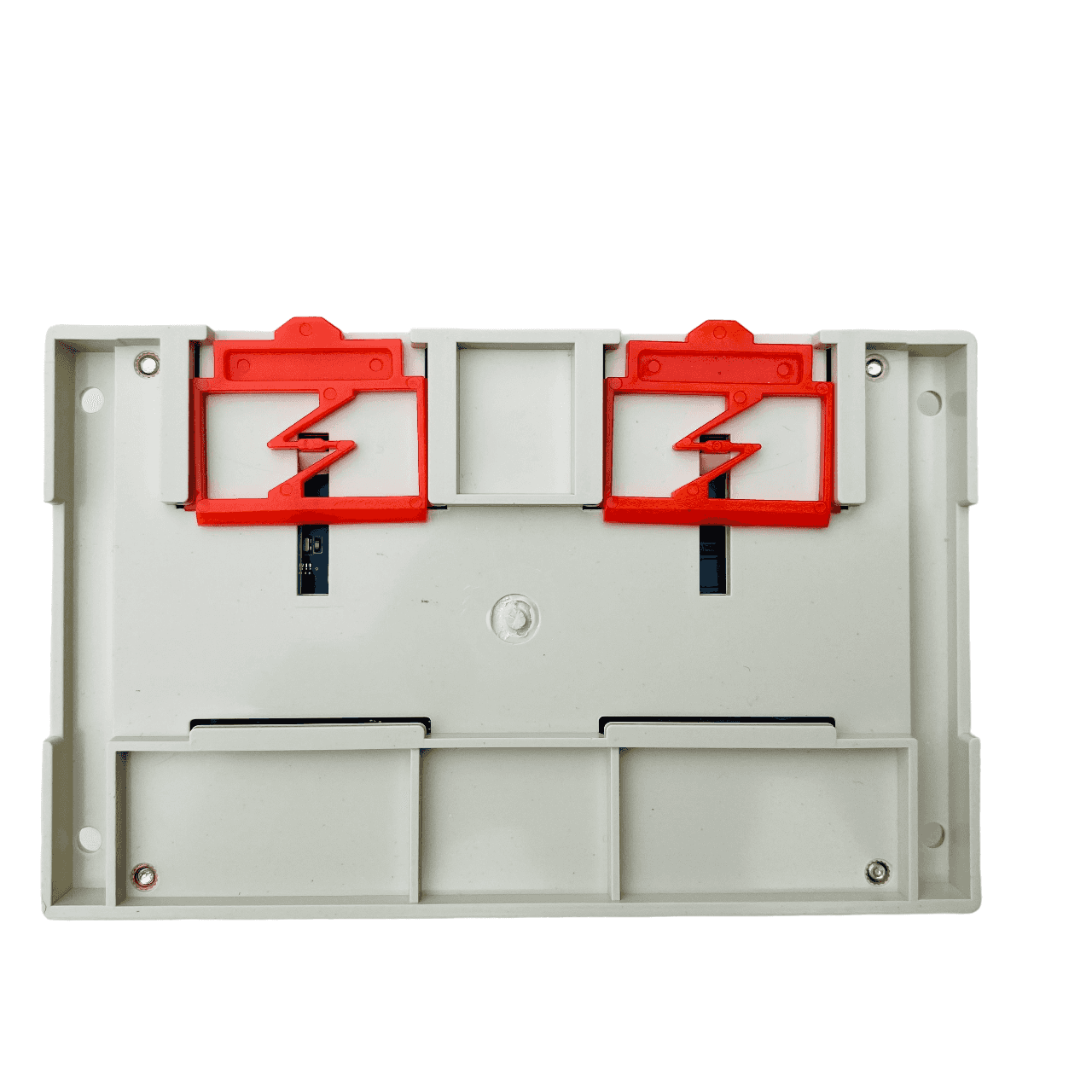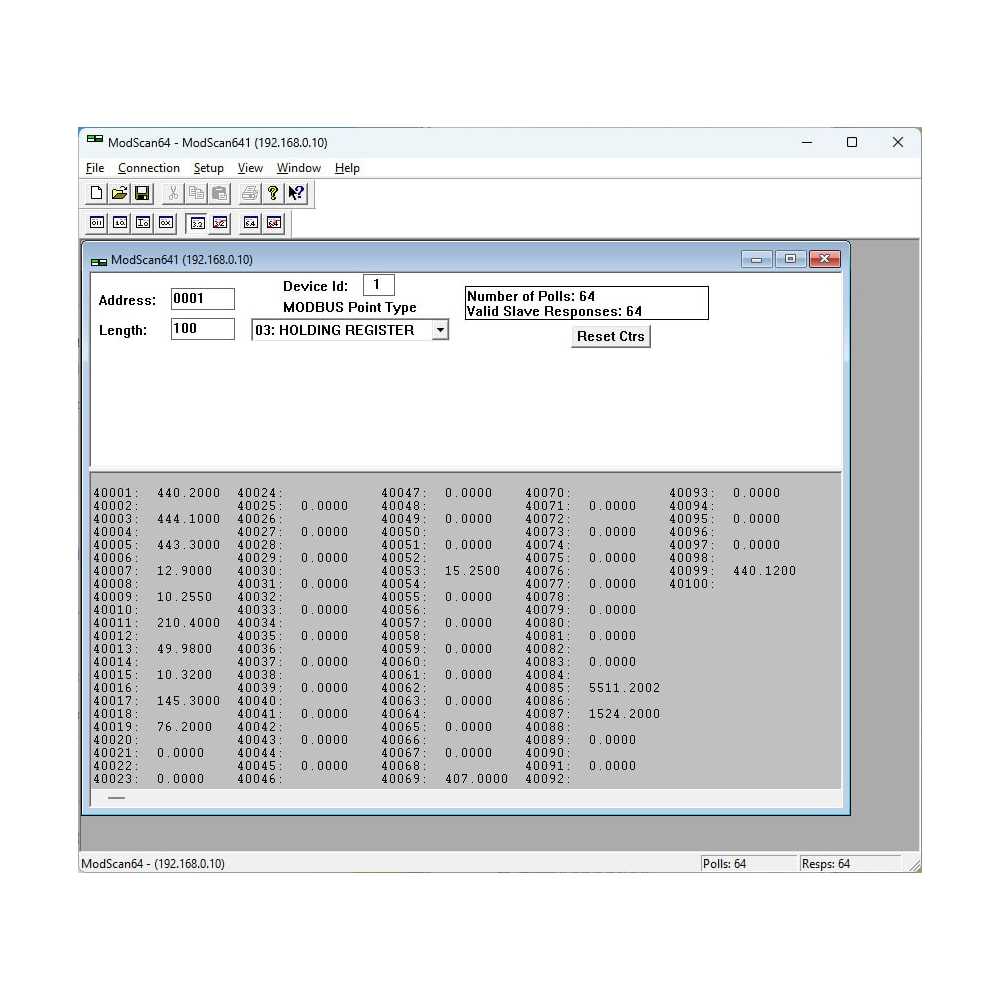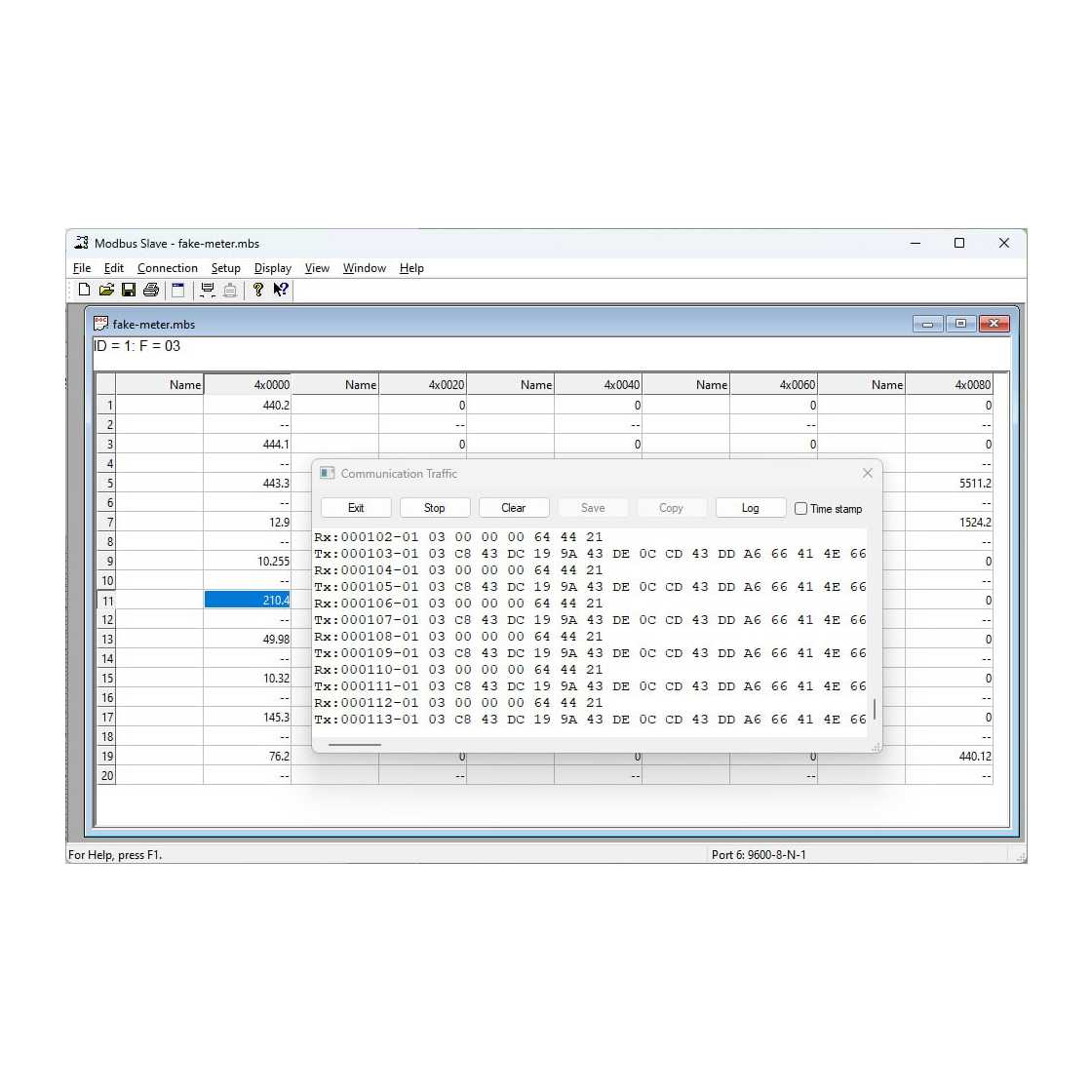Modbus TCP to RTU Gateway
Model: G-MTR-1E2R
$225$210
The Gateway has one ethernet port and two RS485 ports, which allow it to connect to two different networks of Modbus RTU RS485 devices. It enables bidirectional communication between SCADA or TCP Modscan clients and these devices. It translates Modbus TCP requests and responses to and from Modbus RTU for each network.
Availability: In Stock
- Description
- Specification
The Gateway Routes the requested modbus TCP request messages from a Modbus TCP client (any SCADA system / TCP Modscan application) to Modbus RTU RS485 devices and get the replied messages from RS485 network then forward to the requested TCP client
- Flexible deployment via auto IP address with built in web-configuration.
- 1 Ethernet port, and 2 x RS485 ports.
- Support fixed IP address routing and routable TCP port selection with respect to corresponding RS485 ports.
- Support 512 concurrent TCP requests .
- Support selectable baud rate, stop bit and flow control for RS485 device networks.
